Larissa Nowicki
This practice-led research investigates Anni Albers’s essays and tests how well her practical and theoretical concepts inform, respond, and stretch to meet challenges within today’s field of communication art and design. A practice-based methodology grounded in contemporary fine art making is constructed according to Albers’s material-based directives and informed by “thinking through doing” philosophy drawing from Ingold (2013). Performed by the visual artist/researcher’s hand in the art studio, this conceptual approach to research seeks to discover new interpretations of Albers’s collection writings published in On Design (1961) through the experience of making with materials opposed to traditional qualitative methods of historical text analysis (Smith and Dean 2014). Each art project, with its nuances and insights, becomes an engagement with the materiality of ideas.
References
Ingold, Tim. (2013). Making: Anthropology, Archaeology, Art and Architecture. Abingdon: Routledge.
Smith, Hazel, and Roger T. Dean. (2014) Practice-Led Research, Research-Led Practice in the Creative Arts. Edinburgh: Edinburgh University Press.
Visual artist and researcher, Larissa Nowicki, is currently a PhD candidate at the Royal College of Art, London where she received an MA in Communication Art and Design. She holds a BA in Graphic Design from Rhode Island School of Design. Her practice-led research is performed by hand through gendered processes, which have long been associated with marginalized communities (i.e. weaving, sewing). Her practice across art and design draws from a material based non-linguistic form of communication. In her research she is developing alternative practice-based methods for expanding feminist scholarship within art history through hands-on making with materials. Nowicki’s artwork is held in both private and public collections. She is represented by Jack Fischer Gallery, San Francisco, CA.
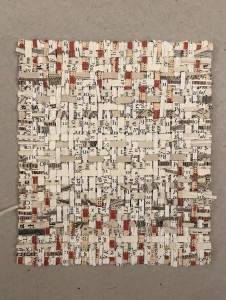
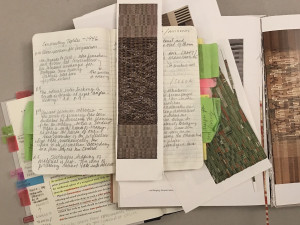
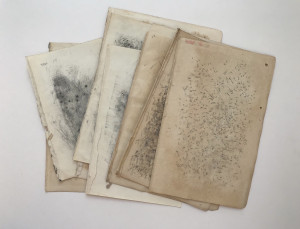
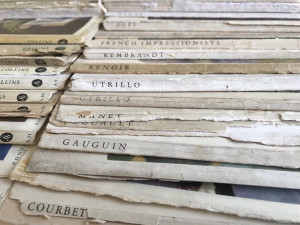
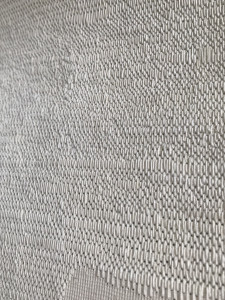
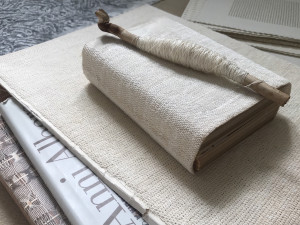
Conversation: where critical friends of itinerant space are invited to comment on journal submissions as part of an ongoing research dialogue.